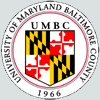| |||||||||||||||||||
Tips:  Range on the Protein: Protein ID Protein Position Domain Position:  No Conserved Features/Sites Found for RRM_4 No Conserved Features/Sites Found for RRM_4
|
|---|
Weblogos are Copyright (c) 2002 Regents of the University of California
| DMDM_info@umbc.edu | 1000 Hilltop Circle, Baltimore, MD 21250 | Department of Biological Sciences | Phone: 410-455-2258 |




 RNA recognition motif of the spliceosomal PrP8. The large RNA-protein complex of the spliceosome catalyzes pre-mRNA splicing. One of the most conserved core proteins is PrP8 which occupies a central position in the catalytic core of the spliceosome, and has been implicated in several crucial molecular rearrangements that occur there, and has recently come under the spotlight for its role in the inherited human disease, Retinitis Pigmentosa. The RNA-recognition motif of PrP8 is highly conserved and provides a possible RNA binding centre for the 5-prime SS, BP, or 3-prime SS of pre-mRNA which are known to contact with Prp8. The most conserved regions of an RRM are defined as the RNP1 and RNP2 sequences. Recognition of RNA targets can also be modulated by a number of other factors, most notably the two loops beta1-alpha1, beta2-beta3 and the amino acid residues C-terminal to the RNP2 domain.
RNA recognition motif of the spliceosomal PrP8. The large RNA-protein complex of the spliceosome catalyzes pre-mRNA splicing. One of the most conserved core proteins is PrP8 which occupies a central position in the catalytic core of the spliceosome, and has been implicated in several crucial molecular rearrangements that occur there, and has recently come under the spotlight for its role in the inherited human disease, Retinitis Pigmentosa. The RNA-recognition motif of PrP8 is highly conserved and provides a possible RNA binding centre for the 5-prime SS, BP, or 3-prime SS of pre-mRNA which are known to contact with Prp8. The most conserved regions of an RRM are defined as the RNP1 and RNP2 sequences. Recognition of RNA targets can also be modulated by a number of other factors, most notably the two loops beta1-alpha1, beta2-beta3 and the amino acid residues C-terminal to the RNP2 domain. No pairwise interactions found for the domain RRM_4
No pairwise interactions found for the domain RRM_4





